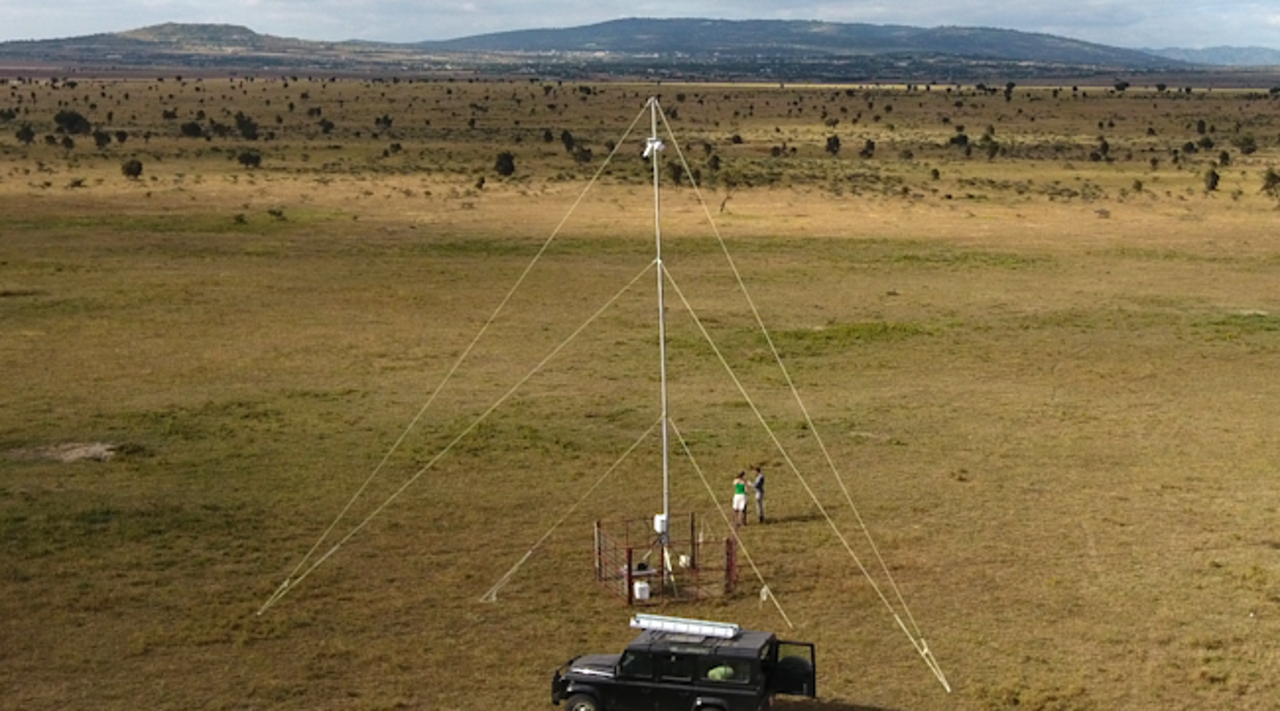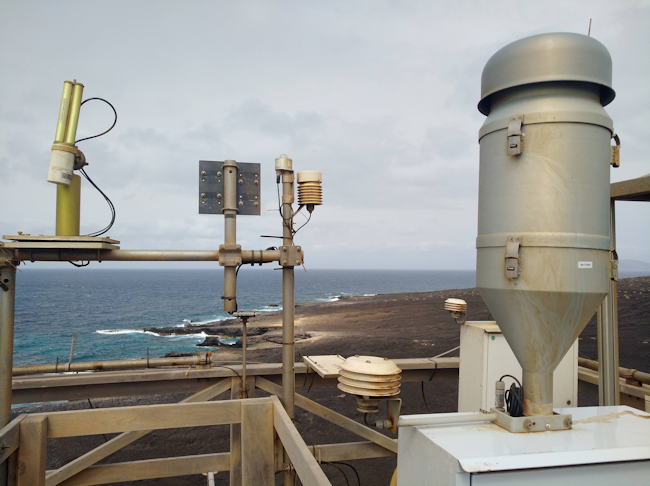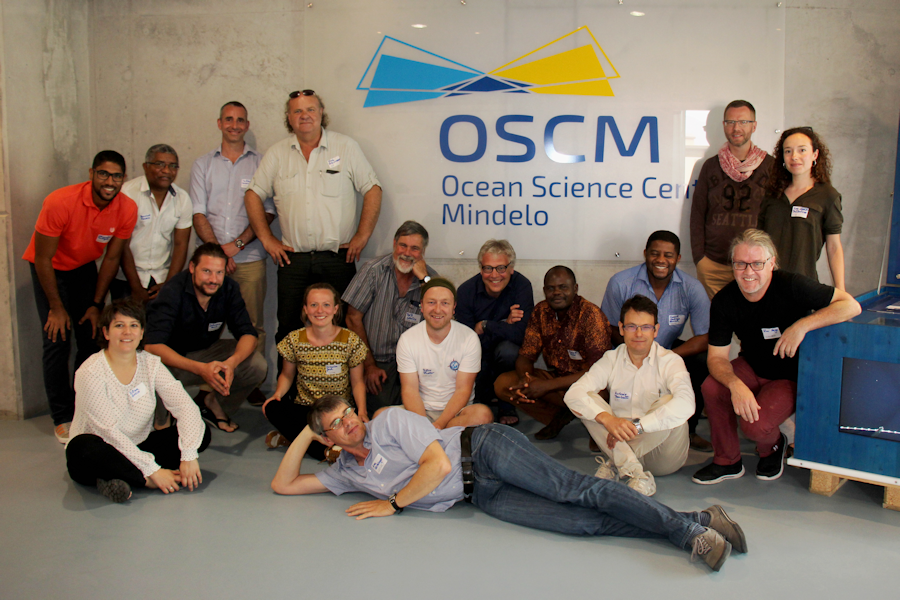Project
SEACRIFOG

Supporting EU-African Cooperation on Research Infrastructures for Food Security and Greenhouse Gas Observations
The project SEACRIFOG designs an adaptive concept for a pan-African observational system on radiative forcing, building at the same time a network of African and European research infrastructures.
Background and Objective
African societies face growing global change risks, with rapidly changing patterns of human settlements and intensity of use of ecosystem services. At the same time, climate variability and climate change trends are intensifying stress on the ecosystems that ensure environmental security, both locally (e.g. ecosystem services), regionally (e.g. sustainable development options) and internationally (e.g. carbon sequestration). Approaches that can address this challenge in an integrated and multidisciplinary way are urgently needed in many places in Africa where there is a close relationship between societal well-being and environmental condition, relating particularly to biomass for energy and food production, and hydrological considerations such as water yields.
Policymakers and land-use decision makers are increasingly dependent on knowledge on the state of the environment. Long-term observational systems and research infrastructures have been identified to be indispensable elements of knowledge generation to serve climate change adaptation, food security, and climate change mitigation. This proposal supports EU-African cooperation on research infrastructures. Its aims are to increase coherence and interoperability between infrastructures in Europe and Africa, to enhance technical competence, science awareness and lifelong learning in Africa in order to facilitate the use of research results for evidence-based policy making, and to identify knowledge gaps for future research directions. The project will
- identify the essential parameters needed to develop science based strategies to improve food and nutrition security including early warning systems and to mitigate climate change,
- formulate a roadmap towards fully interoperable and accessible research infrastructures in agricultural and climate research in the EU and Africa that match the needs of the users, and
- deliver a contribution to capacity building and human capital development in Africa.
Approach
SEACRIFOG is a joint research project with 10 European and 6 African partner institutions. The Thünen Institute of Climate-Smart Agriculture takes the overall coordination of the project.
Results
The project lays the foundation for the design of a comprehensive greenhouse gas observation system. The design study is based on intensive stakeholder involvement, in-depth pre-studies on existing research infrastructures in Africa, robust cost analysis and policy work. As a main output of the project, the SEACRIFOG inventory tool was developed. It serves as an open database to access and find data on greenhouse gases and related issues in Africa. Also, locations and coverage of existing datasets, measurement infrastructures and networks are mapped in the database. It can be openly accessed here: seacrifog.saeon.ac.za
The envisioned greenhouse gas observation system would not only pave the way for producing harmonized greenhouse gas measurement data in Africa, but also for a high-quality research environment with corresponding employment opportunities. At meantime the project results indicate that there is need for more education programs in Africa to fill such future positions. Within the cost analysis the estimates show that more than halve of the overall estimated budget is needed for capacity building and education. Already during the project duration, first steps of capacity building were made by organizing four training workshops and supporting one workshop on topics such as oceanic, atmospheric, or terrestrial greenhouse gas measurements and data processing. Moreover, the project contributed in the development of a masters degree program on oceanic science on Cape Verde, in cooperation with several German institutions and the West African science program WASCAL.
The envisioned greenhouse gas observation system is an effective tool for evidence-based policies related to greenhouse gases and climate. The foundations for political cooperation, acceptance and support to build a greenhouse gas observation system were laid through workshops and networking with high-ranking representatives from research, politics and the private sector. The project is a first step to create EU-African cooperation on greenhouse gas monitoring and mitigation. Further cooperation is planned.
Project brief: Jorch V (2020) SEACRIFOG - Supporting EU-African Cooperation on Research Infrastructures for Food Security and Greenhouse Gas Observations. Braunschweig: Thünen Institute of Climate-Smart Agriculture, 2 p, Project Brief Thünen Inst 2020/26a, DOI:10.3220/PB1608193560000
Links and Downloads
Involved Thünen-Partners
Involved external Thünen-Partners
-
ILRI - International Livestock Research Institute
(Nairobi, Kenia) -
CMCC Foundation – Euro-Mediterranean Center on Climate Change
(Trieste, Italien) - WASCAL- West Africa Science Center on Climate Change and Adapted Land Use
(Accra, Ghana) - ICOS ERIC- Integrated Carbon Observation System
(Helsinki, Finnland) -
University of Witwatersrand
(Johannesburg, Südafrika) -
Trinity College Dublin (TCD)
(Dublin, Irland) - SASSCAL- Southern African Science Service Centre for Climate Change and Adaptive Land Management
(Windhoek, Namibia) - SAEON- South African Environmental Observation Network
(Pretoria, Südafrika) - GEOMAR - Helmholtz Zentrum für Ozeanforschung Kiel
(Kiel, Deutschland) - TROPOS- Leibniz Institute for Tropospheric Research
(Leipzig, Deutschland) - University of Bergen
(Bergen, Norwegen) - Uni Research AS (UniRes)
(Bergen, Norwegen) - CzechGlobe
(Brno, Tschechische Republik) -
Lund University
(Lund, Schweden) -
INDP - Instituto Nacional de Desenvolvimento das Pescas / National Fisheries Development Institute
( Mindelo, Kap Verde)
Funding Body
-
European Union (EU)
(international, öffentlich)
Duration
3.2017 - 8.2020
More Information
Project funding number: 730995
Funding program: EU - Horizon 2020 - Reinforcing European policy for research infrastructures
Project status:
finished
Publications
- 0
Jorch V (2020) Afrikaweites Netzwerk für die Beobachtung von Treibhausgasen (SEACRIFOG). Braunschweig: Thünen-Institut für Agrarklimaschutz, 2 p, Project Brief Thünen Inst 2020/26, DOI:10.3220/PB1608193351000
- 1
Nickless A, Scholes RJ, Vermeulen A, Beck J, Lopez-Ballesteros A, Ardö J, Karstens U, Rigby M, Kasurinen V, Pantazatou K, Jorch V, Kutsch WL (2020) Greenhouse gas observation network design for Africa. Tellus Ser B 72(1):1-30, DOI:10.1080/16000889.2020.1824486
- 2
Jorch V (2020) SEACRIFOG - Supporting EU-African Cooperation on Research Infrastructures for Food Security and Greenhouse Gas Observations. Braunschweig: Thünen Institute of Climate-Smart Agriculture, 2 p, Project Brief Thünen Inst 2020/26a, DOI:10.3220/PB1608193560000
- 3
Lopez-Ballesteros A, Beck J, Bombelli A, Grieco E, Lorencova EK, Merbold L, Brümmer C, Hugo W, Scholes R, Vackar D, Vermeulen A, Acosta M, Butterbach-Bahl K, Helmschrot J, Kim D-G, Jones M, Jorch V, Pavelka M, Skjelvan I, Saunders M (2018) Towards a feasible and representative pan-African research infrastructure network for GHG observations. Environ Res Lett 13:085003, DOI:10.1088/1748-9326/aad66c

![[Translate to English:] [Translate to English:]](/media/_processed_/6/4/csm_titel_CO2Kampagne8_afeea2273e.png)
![[Translate to English:] [Translate to English:]](/media/_processed_/4/1/csm_titel_93px_CO2Kampagne8_9b0f3354d4.png)







